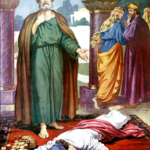
By Mark W. Christy, PhD
(Note: The author of the article affirms John MacArthur’s progressive dispensationalism as well as his position on the doctrines of grace. Since many in the Reformed community also uphold the doctrines of grace, this article is meant to help both covenantalists and dispensationalists better understand the key differences between their positions.)
Given the increased liberalization of many Baptist churches, more and more of their parishioners are turning to Reformed...
Read More



